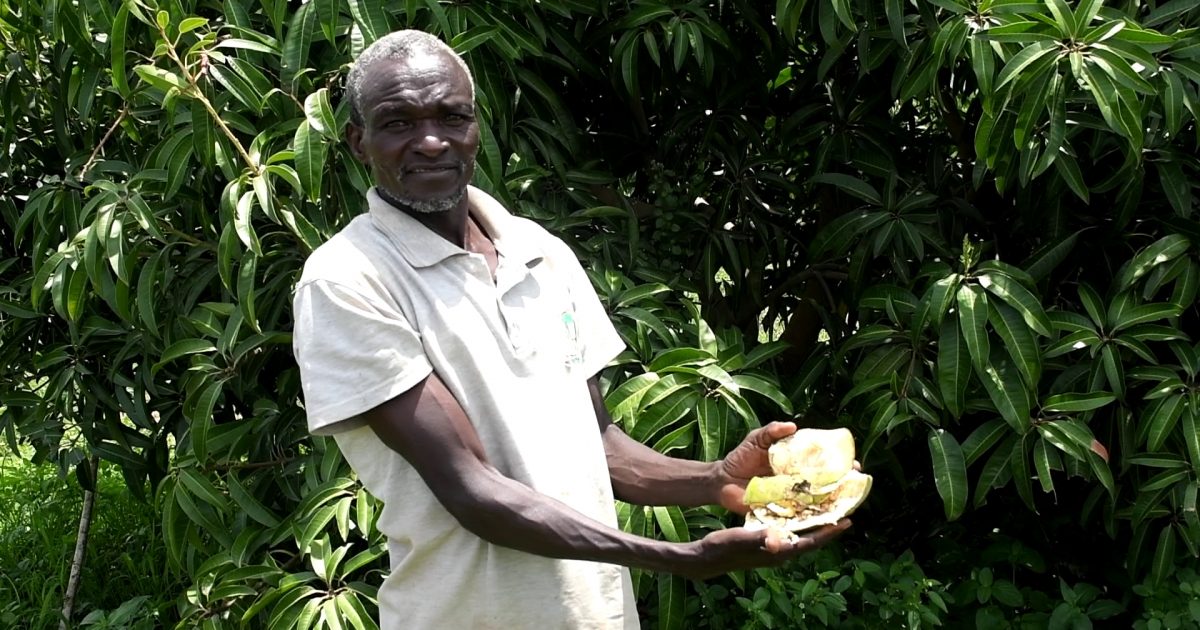More than 20 elephants from the Rimoi Game Reserve strayed into a nearby farm in the dead of night, causing extensive damage to crops and property before finally retreating back into the reserve in the morning.
Fred Kiprop, the affected farmer, lamented the destruction, saying the elephants had wiped out his entire fruit farm which had more than 600 mango and 160 pawpaw trees.
“Each of my 600 mango trees bears over 200 fruits, and I also had 160 pawpaw trees — all of them destroyed,” Kiprop said with visible frustration.
“The farm was my retirement plan. I’ve invested everything here. Now it’s all gone, and I have no idea how to move forward,” he bewailed.
Kiprop, who employs seven people on his farm, said their jobs were now at risk.
He accused the Kenya Wildlife Service (KWS) of negligence, stating that the elephants first invaded his farm on April 6, but no action was taken despite reporting the incident to the area Assistant Chief.
“We reached out to KWS again when the elephants came back last night at midnight. They surrounded our house and got into the farm. It was dangerous to even step outside. We had to call our neighbours for help,” Kiprop recalled.
“When we called KWS, they told us they were in Kabnarok Baringo, which is only 5 kilometres away. I just don’t understand why they couldn’t respond,” he said.
“They should not wait for a disaster to happen only to show up and say sorry. We need preventive action,” he added.
He also revealed that the mangoes destroyed had already been paid for by a buyer, compounding the financial loss.
Kiprop criticized the lack of compensation for affected farmers. “We fill forms and that’s the end of the story. No one ever gets compensated,” he said.
He urged KWS to fence off the Rimoi Game Reserve, questioning why the fencing has never been done despite numerous appeals.
“The elephants will keep coming back; they found ripe mangoes, and they will return,” he said from experience.
Other residents shared similar frustrations. Sila Cheboron, another local, said the situation has become unbearable.
“For years, the animals from Rimoi have terrorized us. KWS never shows up when we call. We’re now thinking of using arrows to protect our farms. If they get into our farms again, we might just kill them, and KWS can come collect the carcasses,” he warned.
Moses Tarokwo, a resident of Songeto and also a farmer, raised concerns about the safety of school-going children, saying they’ve also filed complaints with the game warden, but nothing has changed.
“We are far from KWS land; there shouldn’t be any conflict. They need to put up a fence. We gave our land to KWS, and if they can’t protect us, they should return it so we can use it for something else,” Tarokwo said.
He emphasized the economic importance of their produce. “The pawpaws are a source of income for us. We sell them every Thursday. That money goes into educating our children. Today it’s my neighbour’s farm, tomorrow it might be mine,” he said.
Residents are now calling on both the county and national governments to intervene urgently, warning that without concrete action, tensions between communities and wildlife may spiral out of control.
By Rennish Okong’o





